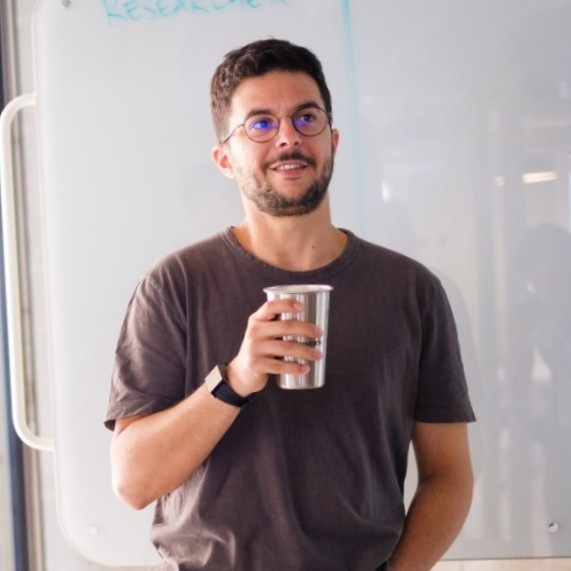


Josh Morales
A (super fun!) continuous research program that actually scales
Most democratization efforts fail because they democratize tools, not judgment. At Miro, we learned this the hard way—handed out tools licenses, ran training sessions, and watched chaos unfold. Teams either froze, paralyzed by methodology decisions, or went rogue, running biased studies that confirmed what they already believed. The research industry faces a scaling paradox: every CPO wants their 200+ product teams to be ""customer-obsessed,"" but most research teams are 5-10 people. Traditional research can't cover that surface area, yet pure democratization creates garbage in, garbage out research that erodes trust in the discipline. FeedForward solves this through what I call ""structured autonomy"": a continuous research program where teams move fast without decreasing insights quality. Think of it as research-as-infrastructure rather than research-as-service. Teams pick a validated template we've created, customize within guardrails, consult us when needed and launch. We maintain continuous user panels refreshed monthly, so studies can launch in 48 hours instead of waiting weeks for recruitment. Every study feeds a central knowledge graph where Team A's edge case becomes Team B's hypothesis, so that research compounds instead of repeating. The implementation is deceptively simple but took us three attempts to get right. This is what I want to talk about as well as how to implement it yourself. And no, I don't believe democratization reduce the need for researchers, it actually amplifies our impact. FeedForward freed our research team from commodity studies to focus on complex, more strategic questions. We went from being perceived as a bottleneck to being sought as strategic advisors. With 2025's hiring freezes and efficiency mandates, research teams need force multipliers, but the old ""train everyone in research methods"" approach is dead as it takes too long and quality control is impossible at scale. FeedForward represents a third path: research systems that encode expertise rather than hoping to transfer it. I've implemented research operations at scale three times at HP (failed spectacularly), N26 (first success), and now Miro (actually working!!!). I've made every mistake possible in democratization, which means I can save you from making them too. FeedForward is running across Berlin and Amsterdam offices (and soon to start in Tokyo), enabling 50+ studies monthly with the partial dedication of 2 people to organise it. The numbers work, the quality holds, and product teams are actually taking much more customer-centric decisions. This session will deliver the complete implementation blueprint including the mistakes, our checklist, scripts for getting buy-in from skeptical stakeholders, and many practical examples that prove impact beyond study count. Because scaling research isn't about getting more people to run studies, it's about building a system where quality emerges from structure, not surveillance.
I'm a UX Research Manager at Miro with a passion for ResearchOps. I've spent around 10 years in the field across HP, N26, and Hotjar, translating user insights into actionable strategies. At Miro, I established FeedForward, our continuous research program that makes user insights accessible across product teams. My background is in Sociology and HCI. Off-duty, you can catch me playing squash, reading as many different books I can, and graciously losing at chess. I use to write tech book reviews in @joshdixit. Based in Berlin, learning German and always curious about what makes people tick.

